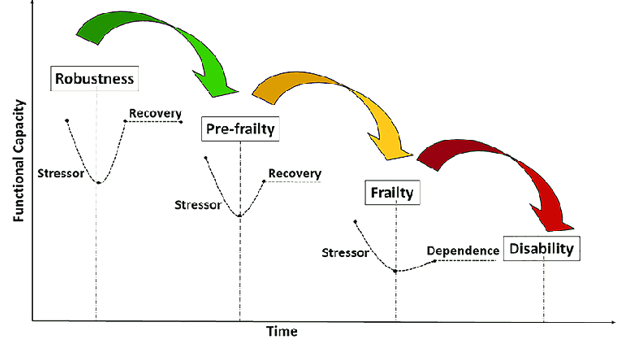A Fall Can Change Everything: Preventing Falls for a Safer You
More information on the relationship between functional decline and mental health:
HEALTHY AGEING
Dr Praveen G Pai
3/13/20242 min read


A Fall Can Change Everything: Preventing Falls for a Safer You
Falls are a major turning point for many older adults. A seemingly simple fall can lead to a domino effect of functional decline and a decline in overall health and well-being. Falls can cause fractures, injuries, and a fear of falling that restricts mobility. Imagine a senior who falls and breaks a hip. Recovery might involve hospitalization, rehabilitation, and a loss of independence. This can lead to depression, social isolation, and a downward spiral in health. Due to poor bone health as a result of osteoporosis or similar conditions, just tripping can result in a fracture and then a fall. Here fracture happens before a fall and the fall may look trivial.
The good news is, falls are often preventable! Here's where we come in.
Through a fall risk assessment, we can evaluate your balance, strength, gait, vision, medications, and home environment. Based on this, we can recommend a personalized plan to reduce your risk. Simple steps can make a big difference. Regular vision checks ensure you see clearly, reducing the risk of tripping over obstacles. Wearing proper footwear with good traction provides stability. And making your home safe by removing tripping hazards, installing grab bars, and improving lighting minimizes fall risks.
Falls can also be a symptom of underlying health issues like dehydration, medication side effects, or even cognitive decline. There are situations where a fall is a early sign of a serious illness which may be an infection or even a cancer. That's why a fall shouldn't be dismissed as a simple accident. Remember, preventing a fall can prevent a cascade of negative consequences. Let's work together to keep you safe, independent, and living life to the fullest!
The Intertwined Dance: Functional Decline and Mental Health in Elderly
Functional decline and mental health in the elderly are intricately linked, creating a vicious cycle that can exacerbate each other. Here's how:
The Two-Way Street:
●Mental Health Impacts Function: Depression, anxiety, and loneliness can significantly affect motivation and energy levels. An elder struggling with these conditions might find daily tasks daunting, leading to a decline in functional independence.
● Functional Decline Impacts Mental Health: Conversely, the loss of independence and the physical limitations associated with functional decline can be incredibly frustrating and demoralizing. This can lead to feelings of helplessness, worthlessness, and social isolation, ultimately worsening mental health.
Examples of this Link:
● Depression: An elder with depression might neglect personal care, lose interest in cooking healthy meals, or withdraw from social activities, leading to functional decline.
● Dementia: As dementia progresses, it can impact memory, judgment, and planning abilities, making it difficult to manage daily tasks like taking medications or preparing meals. This decline in function can then worsen anxiety and depression associated with the disease.
Breaking the Cycle:
Fortunately, addressing both functional decline and mental health can help break this cycle. Here's how:
● Treating Mental Health Conditions: Treating depression, anxiety, or other mental health conditions can improve mood, motivation, and energy levels, making it easier to engage in daily activities.
● Promoting Independence: Supporting an elder's independence through physical and occupational therapy, assistive devices, and home modifications can increase feelings of self-worth and combat depression.
● Socialization: Encouraging social interaction can combat loneliness and isolation, improving both mental and physical well-being.
